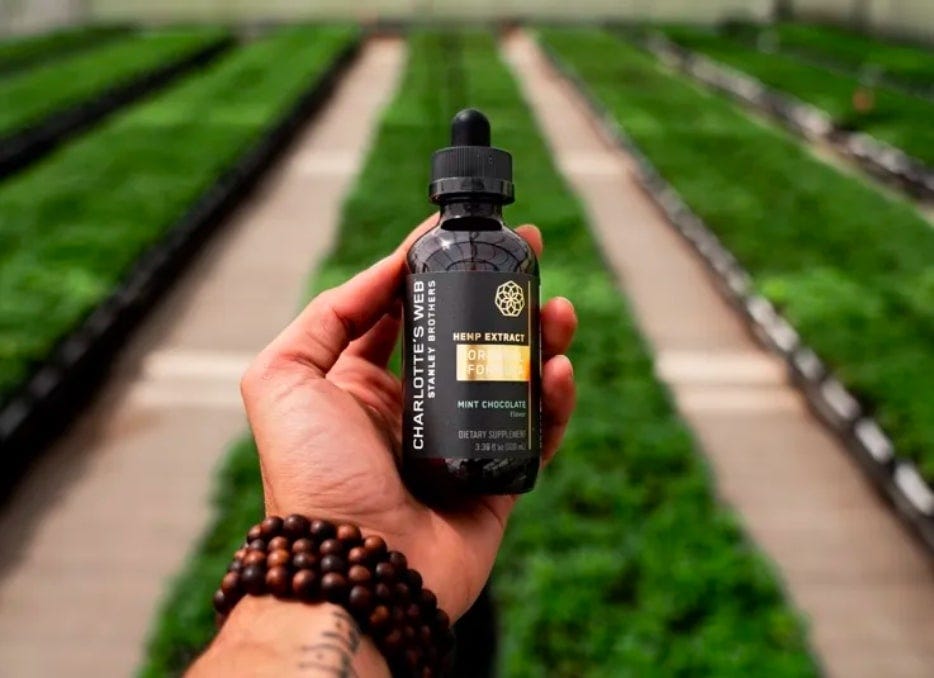
CBD has been shown in studies to lower anxiety and blood pressure. It can also decrease the levels of inflammatory markers in the body. Before starting a CBD diet, make sure you consult your doctor if blood pressure medication is being taken. CBD can interact with prescription drugs, which can alter blood pressure medication concentrations.
CBD lowers blood Pressure
CBD may reduce blood pressure. But the exact mechanism is unknown. Nine healthy male volunteers tested for CBD. The cannabinoid significantly lowered blood pressure at rest and during stress. There were several flaws to the study. First, the subject were young and did not have any history of hypertension. Additionally, the subjects only received a single dose, which isn't representative of actual life-time CBD use.
Hypertension, also called high blood pressure, is a condition which can lead other health problems. It can be fatal if it is not treated. Doctors may prescribe medications to lower blood pressure. However, marijuana is not a substitute for prescription medications. Instead, marijuana contains bioactive chemicals that work in concert to lower blood pressure.
It lowers anxiety
Recent research found that CBD could reduce anxiety and blood tension in healthy subjects. Participants were randomly assigned to one of three CBD doses. The high and low dosages had similar effects on anxiety. Although the lowest dose had the greatest effect on blood pressure, the medium dose was not as effective. However, researchers found that participants had significantly decreased stress responses to the medium dose.

Although CBD-based medication for anxiety has not been approved by the Food and Drug Administration, many studies have shown that CBD can be used to treat anxiety. One study showed that CBD-based CBD treatments were effective for treating SAD. The CBD doses administered to participants was comparable to the ones given to control subjects.
FAQ
Is there a CBD industry that is growing?
Yes. This growth is expected to continue as legalization expands across North America. Canada was the first country to legalize recreational cannabis use. Several states also have medical marijuana laws.
As more states adopt legislation that allows medicinal marijuana access, this trend is likely to continue at least for the next decade.
The legalization of marijuana also makes sense from an economic perspective. Legalizing pot has many other advantages, including a new market that is lucrative for farmers.
It could, for example, help lower crime rates by decreasing the availability of illegal drug. It could also generate tax revenue for the government.
As legal marijuana is more popular, people may be less likely to smoke. This would reduce hangovers and increase health care costs.
People with chronic pain may also find marijuana to improve their quality life. Many believe that THC (the active ingredient in marijuana) helps to relieve the symptoms of nausea and muscle spasms associated with chemotherapy.
Finally, marijuana might become a valuable tool for treating mental illnesses such as depression and anxiety. Some studies show that marijuana can even be used to treat schizophrenia.
Even though the CBD industry looks promising, there are still many challenges to be overcome.
What are the most common mistakes companies make when they try to enter the US market for cannabinoid products?
Not understanding the regulations for cannabis products is a first mistake. This could result in you needing to alter your product formulation.
The second is not knowing how you should label your product. It is essential to find out if your product contains either THC or CBD.
Thirdly, you should understand how to package your product correctly. If your product does contain THC, then you must ensure that it is packaged in child-resistant containers.
If your product does NOT contain THC you should still adhere to all packaging laws. There is a lot of states where cannabidiol, or CBD (CBD), is legal.
Remember to keep track of any recalls for your products. It is crucial to notify customers as soon possible if you have a problem with your product.
How can companies successfully market CBD products in a regulation-compliant manner?
The FDA doesn't regulate hemp as an agricultural commodity. The FDA regulates cannabis derivatives (e.g. marijuana) under the Controlled Substances Act. To date, there are no specific regulations for CBD.
CBD is legal at state level in 29 US states. Federal law considers it illegal. This uncertainty creates uncertainty for CBD product sellers.
The FDA also maintains strict guidelines on how CBD products may be marketed. THC content must be clearly disclosed. Without scientific evidence supporting this claim, CBD cannot be used to treat certain medical conditions.
Additional information is required by the FDA regarding manufacturers' manufacturing practices, quality control measures, and other details. They require companies to carry out clinical trials to prove safety or efficacy.
When developing their own marketing strategies, companies should take into account these points.
Statistics
- CBD seems unlikely to directly influence sleep in healthy humans [115] (and maybe “sleep-promoting” in those with certain comorbid conditions) (ncbi.nlm.nih.gov)
- A recent systematic review of human trials also reported that individuals with epilepsy receiving CBD (5–20 mg·kg−1·day−1) were more likely to experience decreased appetite than those receiving placebo (i.e., ~20 vs. 5% of patients) (ncbi.nlm.nih.gov)
- As a substance that was federally illegal before the passage of the 2018 Farm Bill, hemp-derived cannabinoids with no more than 0.3% THC still face a regulatory grey area. (forbes.com)
- HR −16 mmHg; 95% CI −26, −6; I2 = 92%) (ncbi.nlm.nih.gov)
- A recent study [161] also found that in vitro CBD treatment (i.e., ≤ 2 h exposure to 10 μM) induced ~40% vasorelaxation in isolated (pre-constricted) (ncbi.nlm.nih.gov)
External Links
How To
What are the main issues with the CBD industry.
The market for CBD is growing at an astonishing rate. But, businesses who want to enter this market still face numerous challenges. These include a lack of consumer awareness, high cost of entry, limited access to capital, and regulatory uncertainty.
Many consumers aren't aware of the benefits and limitations of CBD. This means they are not able to make informed choices about whether or no to purchase CBD products.
CBD companies heavily rely on word-of-mouth advertising. This is costly because they have to pay for advertising and hire staff to promote their brand.
The high production costs are another issue that new entrants to the CBD industry face. CBD products require a lot of raw materials. CBD oil can only be made if hemp is grown in the right climate and soil conditions.
Grow enough hemp to produce CBD oil requires approximately $1,000 per annum. Many small farmers can't afford to begin.
Another challenge new entrants face in the CBD market is the lack of access to capital. Banks discourage many people from starting a business because of the stigma attached to this industry.
Finally, there is regulatory uncertainty surrounding the sale of CBD products. There are no guidelines for how CBD products should market.
Some states have passed legislation restricting the sale of CBD products, but this has yet to become national policy.
So far, only two states - Maine and Nevada - have legalized recreational marijuana.
Some states, such as Michigan and Massachusetts, are looking at similar measures.
These changes could mean that CBD manufacturers will be more competitive.
As a result of these factors, many entrepreneurs choose to work from home rather than start a physical business.